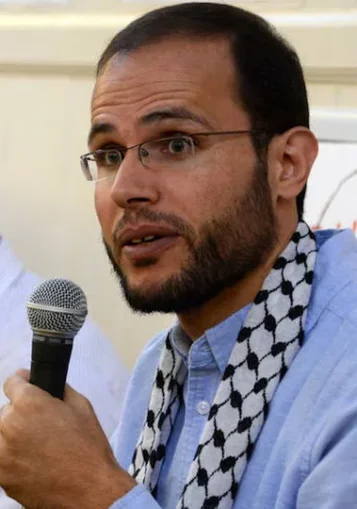The following statement was issued by the Palestinian-led Within Our Lifetime group based in New York City on Resistance News Network on Feb. 21, 2025.
Today on the 60th anniversary of his assassination and martyrdom on February 21, 1965, we honor the life and legacy of Malcolm X, El-Hajj Malik El-Shabazz. Through his lifelong commitment to linking the Black liberation struggle in the United States to the struggle of all oppressed people resisting colonialism and imperialism around the world, Malcolm redefined what it meant to fight for freedom.
Malcolm’s revolutionary internationalism and travels across Asia, Africa and beyond led him to take an unwavering stance in support of Palestine and against zionism as part of a worldwide struggle against oppression and injustice.

Credit: WOL
Just months before his death at the age of 39, Malcolm traveled to Palestine in September 1964 and spent two days in Gaza. In Gaza, Malcolm visited Palestinian refugee camps established following the Nakba in 1948, met with the poet Harun Hashim Rashid and prayed in local masjids.
During his next stop in Cairo, he met with the newly founded Palestine Liberation Organization. The trip inspired him to publish an article in the Egyptian Gazette [on] Sept. 17, 1964, in which he famously wrote: “The zionist argument to justify Israel’s present occupation of Arab Palestine has no intelligent or legal basis in history.”
Refaat Alareer: Malcolm X was ‘my role model’

Refaat Alameer
Today as we look back on Malcolm’s legacy we also uplift the Palestinian poet, intellectual, professor and martyr Refaat Alareer, who like Malcolm was assassinated.
In 2021, on the 56th anniversary of Malcolm’s martyrdom, Refaat recounted that years prior in 2004 he “was asked in an interview for a scholarship who my role model was. I took a breath, smiled and unflinchingly, proudly, said, ‘Malcolm X.’
“The interviewer said, ‘But he was violent!’ I spoke for five minutes nonstop about brother Malcolm X. I won the grant. It was one of my proudest moments.”
Refaat’s interview in 2004 took place exactly 40 years after Malcolm’s trip to Gaza in 1964. Despite the decades that separated them, Refaat became immersed in Malcolm’s writings and his teachings, across space and time, with Gaza at the center.
In 2012, during an event commemorating Malcolm X at the Centre for Political and Development Studies in Gaza, Refaat was invited to speak. During his talk, Refaat reflected that he was first introduced to Malcolm in his early 20s, which is when he first read his autobiography.
“All Palestinians admire him, or should admire him, for many reasons,” Refaat declared in his talk. “As Palestinians, we can use different means and methods to liberate ourselves, to get rid of the occupation and the evils of the occupation, ‘by any means necessary,’ like he said.
“If you don’t read him,” Refaat continued, “there is a blank area in your mind or heart that needs to be filled.”
Malcolm filled this area in Refaat’s mind and countless others through the generations, from Harlem to Gaza and around the world. During the Great Return March in Gaza in 2018, Refaat showed up to one of the demonstrations with a handwritten sign featuring a quote of Malcolm’s: “If you want something, you’d better make some noise.”
Like Malcolm, Refaat rejected any and all attempts to condemn and vilify the resistance of colonized people in the face of genocide. As Malcolm once said, “We need allies who are going to help us achieve a victory, not allies who are going to tell us to be nonviolent.”
Malcolm and Refaat, like Gaza, continue to teach us what it means to fight for our collective humanity in the face of oppression, and they will continue to inspire generation after generation until liberation within our lifetime.
As Malcolm taught us: “Power in defense of freedom is greater than power on behalf of tyranny and oppression, because power, real power, comes from conviction which produces action, uncompromising action. It also produces insurrection against oppression. This is the only way you end oppression — with power.”
The statement was lightly edited.
